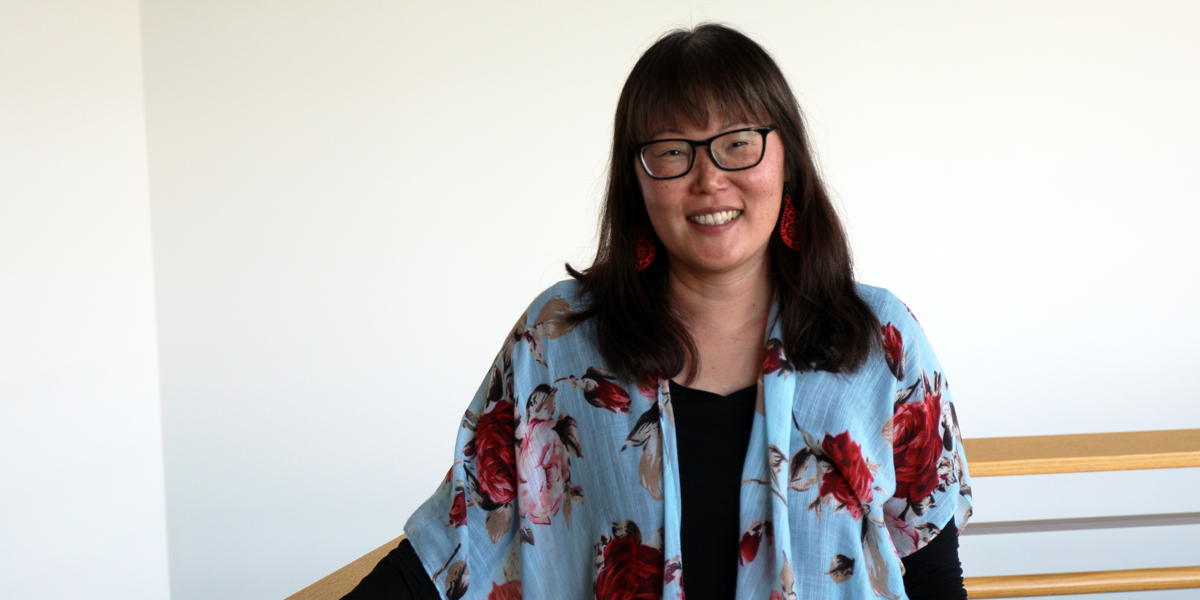
Heewon Lee didn’t start a nonprofit with the intention of changing careers. Despite a background in graphic design, the University of Minnesota graduate’s (M.S., genetic counseling, ‘19; B.A., journalism, ‘97) effort to create a DNA-based family search organization for fellow Korean adoptees and a meeting with a genetic counselor while pregnant with her first child opened her eyes to a whole new field.
“[Genetic counseling] seemed like a perfect bridge between science and patient involvement,” says Lee, a Korean adoptee herself who now serves as an assistant professor, assistant program director and director of inclusive curriculum and teaching at the UMN Genetic Counseling Graduate Program.
After earning her undergraduate degree, Lee worked nearly 15 years as a graphic designer before reading a New York Times article that led on a new career trajectory. The piece focused on the work of Dr. Jose Lorente who used DNA to track down missing children. The article stirred in Lee a desire to connect Korean adoptees from around the world with their birth families.
After reading the piece, Lee talked with Lorente about starting her own organization to reunite families. As she built the organization, Lee soon realized she needed further education in genetics. This kicked off an effort in 2014 to start coursework so that she could apply to a genetic counseling program.
Lee eventually came back to the University of Minnesota to take prerequisites and eventually land in the genetic counseling program, finishing her master’s in 2019. In late February 2022, Lee became an assistant professor and director of inclusive teaching and curriculum at the Genetic Counseling Graduate Program.
During her time in the program, Lee has already noted some major changes to the program and the field more broadly. The murder of George Floyd and racial justice efforts that followed spurred genetic counseling graduate programs to work on increasing access and inclusion, as well as make admissions more accessible. Those efforts include acknowledging that genetic counselors have traditionally been white and cis-female, and reviewing and changing existing genetic counseling materials that may use speech normalizing heterosexuality or showing only white queer individuals. It has also included lowering barriers to applications, such as virtual interviews, to make it easier for people to join the program.
“I’m impressed that the program has made many changes and is now more focused. We won’t be just talking about ‘John and Jane’ in our teaching materials,” says Lee. “We want to ask questions about who we picture, not show all patients standing or jumping—we want more disability awareness. Also, we’re checking in with students to include transgender patients and intersex individuals, not show people in a token way. We want to integrate inclusive messages in our materials, so students can take them into their communities. That’s an exciting thing.”